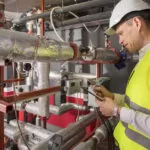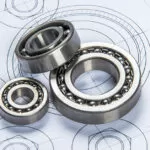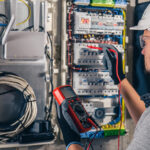Engineering inspection is the linchpin of modern society, ensuring the safety, functionality, and reliability of our built environment. This article explores the the vital role, its diverse applications, and why Engineering Inspection Services is indispensable in today’s world.
Table of Contents
Why Engineering Inspection Matters
In a world where engineering marvels shape our lives, safety and reliability are paramount. Inspections plays a pivotal role in achieving these objectives. This article delves into the importance, methodologies, and impact of engineering inspection.

A Multifaceted Purpose
Engineering inspection serves a multitude of purposes, all aimed at safeguarding lives, property, and resources. Its significance can be distilled into several key facets:
- Ensuring Safety: At its core, inspections is about identifying and mitigating potential hazards and weaknesses. By doing so, it prevents accidents, disasters, and the loss of human lives.
- Maintaining Reliability: Beyond safety, inspections are vital for maintaining the functionality and longevity of critical assets. From bridges and buildings to power plants and transportation networks, regular inspections ensure they remain operational.
- Regulatory Compliance: Compliance with industry regulations and standards is non-negotiable. Engineering inspections are designed to ensure that structures and systems adhere to these stringent requirements.
- Cost Savings: Early detection of issues through inspection can save organizations substantial amounts of money. It’s more cost-effective to fix a problem in its early stages than to deal with a catastrophic failure.
The Varied Landscape of Engineering Inspections
Engineering inspections come in various forms, each tailored to specific needs and goals. These inspections are categorized into three primary types:
Routine Maintenance Inspections
Routine maintenance inspections are scheduled at regular intervals to ensure that equipment and systems operate optimally. They encompass a wide range of industries, from manufacturing plants to HVAC systems.
Structural Integrity Inspections
Structural integrity inspections focus on the stability and safety of buildings and infrastructure. This type of inspection involves a thorough assessment of materials, construction methods, and structural components.
Equipment and Machinery Inspections
Equipment and machinery inspections are crucial for industries that rely on heavy machinery. These inspections assess the condition and performance of equipment, ensuring they operate safely and efficiently.
The Tools of the Trade
Engineering inspections are executed using a variety of techniques and technologies, each suited to specific circumstances:
Visual Inspection
Visual inspection is the fundamental first step in any inspection process. It involves a comprehensive visual assessment of assets, looking for visible signs of wear, damage, or defects.
Non-Destructive Testing (NDT)
Non-destructive testing techniques, such as ultrasonic testing and radiography, allow inspectors to examine materials and components without causing any damage. These methods are particularly valuable in industries where preserving the integrity of the asset is paramount.
Remote Monitoring
Modern technology has enabled remote monitoring of assets, providing real-time data on their condition and performance. This allows for proactive maintenance and minimizes downtime.
Navigating the Regulatory Landscape
Engineering inspection is closely intertwined with regulations and standards. Different industries have specific criteria that must be met, and inspections are the means by which compliance is ensured.
The Engineer’s Role
Engineers are the linchpins of the inspection process. Their expertise and knowledge are essential for the accurate assessment of structures and systems. They design inspection protocols, interpret results, and make critical decisions regarding the maintenance and repair of assets.
Proactive Inspection: A Smart Approach
Proactive inspection, as opposed to reactive approaches, can prevent catastrophic failures, reduce downtime, and extend the life of assets. By identifying issues before they escalate, organizations save both money and lives.
Challenges in Engineering Inspection
While the importance of inspection is undeniable, it is not without its challenges. Budget constraints, access to remote locations, and the rapid evolution of technology pose significant obstacles that must be overcome.
Success Stories: Case Studies
Real-world examples highlight the impact of engineering inspection. These stories showcase how early detection of issues through inspection has saved lives and resources.
The Future of Engineering Inspection
The future of inspection in engineering is marked by innovation. Advancements in robotics, AI, and data analytics are revolutionizing the field, making inspections more efficient and precise.
FAQ’s of Engineering Inspections
How often should engineering inspections be conducted?
Engineering inspections should be conducted regularly, with the frequency depending on the type of asset and industry standards.
What is the role of non-destructive testing in engineering inspection?
Non-destructive testing allows inspectors to assess the condition of materials and components without causing damage, making it a valuable tool in inspection processes.
Are there regulations governing engineering inspections?
Yes, various industries have specific regulations and standards that must be followed, and inspections ensure compliance with these requirements.
How can engineers benefit from embracing proactive inspection practices?
Proactive inspection can prevent catastrophic failures, reduce maintenance costs, and enhance the reliability of engineering assets.
What are the future trends in engineering inspection?
The future of engineering inspection lies in advanced technologies like robotics, AI, and data analytics, which will enable more efficient and precise inspections.
Conclusion
In conclusion, engineering inspection is the guardian of safety and reliability in the world of engineering. It ensures that the structures and systems we rely on daily are in optimal condition. Embracing proactive inspection practices and staying abreast of technological advancements is essential for a safer and more efficient future.
Engineering Inspection Services in Houston Texas
If you are in Houston, Texas, and require top-notch engineering inspection and MEP (Mechanical, Electrical, and Plumbing) services, look no further than Qusrawi MEP. With a track record of excellence, Qusrawi MEP is your trusted partner for ensuring the safety and reliability of your building’s vital systems. Contact us today at https://qusrawi.com/ to learn more about their services and how they can help you maintain your infrastructure to the highest standards.




